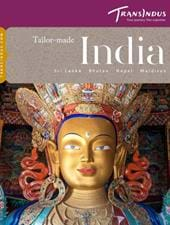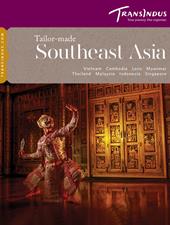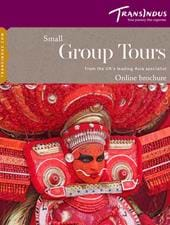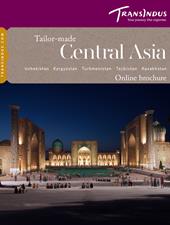Time zone: UTC+8 hours
Flying time: 9 hours 30 minutes
Capital: Beijing
Currency
The currency in China is the Renminbi Yuan. The Yuan is divided into 10 Jiao, which in turn are divided into 10 fen. Coins are minted in denominations of 1 Yuan, 5 Jiao, 1 Jiao and 5 fen. There are paper versions of these also. Bank notes are printed in one, two, five 10, 20, 50 and 100 Yuan denominations. Be on the lookout for fake notes as these are becoming quite common in China. When in doubt, ask your local guide to advise you or join you when going to the bank.
Note: In spoken Chinese, ‘yuan’ is often pronounced as ‘kuai’ and the ‘jiao’ as ‘mao’.
Currency is not readily available outside of China. Some banks are now issuing Renminbi but this should not be relied upon. Money and travellers cheques can be exchanged at the airport, border crossings, branches of the Bank of China, some large department stores and some major tourist hotels. Only major bank branches will exchange pounds and euros, but all banks that offer currency exchange can change US dollars. Foreign exchange counters are generally open 9-7pm, excluding weekends and national holidays.
Torn, marked or otherwise damaged notes are more often than not rejected by banks and hotels.
Travellers’ cheques are best in US dollars and you should not rely on being able to change these outside the major tourist areas. Many hotels also have a limited amount of cash available and cashing Travellers Cheques may not be possible at certain days of the week.
Credit cards are accepted at most major hotels, department stores and high-end city restaurants, but should not be relied upon. It is always wiser to carry enough cash on you to pay for what you spend.
Similarly, do not depend on international ATMs to withdraw your Yuan. Though international ATMs are common in all the major cities they are only found in a limited number of banks in the smaller cities (although the number is growing).
On arrival in China the bank or ATM will issue you with 100 Yuan notes. Paying for small purchases can be problematic in most areas as there is not always sufficient change available. Therefore we recommend asking the bank to break some of these notes into smaller denominations or initially try to break as many notes as you can.
Food and Healthcare
Before visiting China you should consult your doctor regarding the vaccinations it may be recommended to have. The World Health Organisation recommends that travellers to China have Diptheria and tetanus, Hepatitis A and B, MMR (Measles, Mumps and Rubella), Typhoid and Varicella (if you haven’t already had chicken pox).
Malaria is still present in some of the rural areas of the southwestern regions (predominantly those bordering Laos, Myanmar and Vietnam) and precautions are advisable if visiting these areas.
Dengue Fever occurs in some areas of southern China and one should take care to avoid mosquito bites.
Rabies is relatively common in China and you should discuss the need for a vaccination with your doctor. One should also avoid contact with all dogs, no matter how cute or friendly they seem.
On 16 November 2005, China's first cases of Avian Influenza in humans were confirmed. One fatality was reported in Anhui province; a second individual in Hunan province survived. Both are thought to have come into contact with infected poultry before becoming sick. No evidence of human-to-human transmission is reported. The World Health Organisation continues to monitor the situation. The risk from Avian Influenza is believed to be very low, provided you avoid visiting live animal markets, poultry farms and other places where you may come into close contact with domestic, caged or wild birds; and ensure poultry and egg dishes are thoroughly cooked.
Tap water should not be drunk and ice and fresh fruit juices should also be avoided outside of the major hotels. All hotels offer at least one complimentary bottle of treated water in the room. Large bottles of filtered water available at supermarkets or convenience stores cost about 40 pence, and 500ml bottles less than 20 pence. We also recommend that you eat moderately for the first few days. This allows your system to get used to the changes in cuisine. A recent report revealed that many of the locally produced ice cream brands are sub-standard, so it would be advisable not to buy these products outside of the major cities where western brands are available.
Visitors to areas of high altitude such as Tibet, Qinghai and Xinjiang should be aware of the symptoms and dangers of altitude sickness and if possible take time to acclimatise to these heights. Travellers to these areas should drink sufficient amounts of water or isotonic fluids and limit their alcohol intake. If symptoms persist after two or three days, consult a doctor and contact your insurance company.
We also recommend you carry with you a small supply of basic health care medication such as travel sickness tablets, anti-diarrhoea tablets, insect repellent, sun creams and a general purpose antibiotic. Although most of these items are available in China, the security provided by brands one is used to is reassuring.
We strongly recommend that all travellers be properly insured for the holiday. While taking insurance, please check that it includes repatriation costs. Many insurance companies keep lists of preferred hospitals in different cities and towns. It is a good idea to check with your insurance provider if this is the case and, if so, ask them to provide you with that list. It is usually helpful to carry some emergency contact information in your wallet, bag or travel belt in case of an emergency.
Cost of meals in China can vary widely depending on where you eat. As a rough guide;
Meals in smaller, local restaurants: £5 per person (staff speak very limited English)
Meals in larger restaurants catering mainly to tourists: £10 – 15 per person
Meals in standard grade hotels: £10-15 per person
Meals in the higher end hotels: £15-30 per person
Beer and whisky cost the same as in UK: about £3-5 per bottle/pint/glass. Wines tend to be more expensive and not all places serve it.
Beer in local restaurants tends to be slightly cheaper.
Clothing
What to wear depends mainly on two things; when and where you are travelling. China’s weather varies tremendously with these factors. Winters in the far north are extremely cold and the summers are hot and dry. In the central regions along the Yangtze valley area winters are short, cold and wet whilst the summers are long, sticky and hot. In the southern regions the climate is hot and humid from April to September (when it is also the rainy season) and typhoons occur between July and September. Winters are short but chilly. The north-western desert regions are hot and dry in the summer and extremely cold in the winter.
For hot weather light, breathable layers are best, and care should be taken to avoid sunburn and overexposure to the rays. Clean water should be taken in at regular intervals to avoid dehydration.
For cold weather layers of clothing that trap the heat should be worn, the outermost of which should be windproof. A hat is also essential in very cold weather.
In general a light rain jacket and waterproof walking shoes are a must. Most shopping centres and hotels are air conditioned at quite low temperatures, making it necessary to be able to dress fairly warm during the summer as well.
At some of the monuments and temples, it is advisable to avoid sleeveless tops, short skirts and shorts.
Safety
Compared with many other countries, China is considered one of the safest countries in the world for personal security.
Though serious crime against foreigners is relatively rare, petty crimes such as pick pocketing and purse snatching occur somewhat frequently. This often happens in crowded areas such as stations, markets, shopping areas, sightseeing destinations, etc. so it is wise to be cautious with your personal possessions in public places such as these.
The following are some precautions to avoid potential problems:
• Do not show off your money in public
• Keep enough money for your immediate needs in your pocket, and hide the rest on your body or leave your backup supply in a safety deposit box at your hotel
• Always keep valuables in a safety deposit box at your hotel instead of leaving them in your room
• Remove any jewellery that may draw a thief's attention before you go out
• Never wear a bag or purse on your street-side shoulder in order to avoid becoming a target of the "snatch-and-ride"
• Never carry your passport/visa, credit cards, traveller’s cheques or other travel documents in your shoulder bag or bum bag
• Ensure that you are aware of the values of different local banknotes to avoid being deceived
• Be particularly cautious about your possession in crowded areas such as local festivals, markets, tourist sites, railway, bus stations, on trains and buses
• Always let your hotel or guides know where you are on your free days during your tour
• Respect the customs of the local ethnic groups
• Do not quarrel with anyone that holds an official post
• Any disputes should be reported to your local guides for resolution.
• Avoid travelling in any areas or sites that are not open to foreigners.
• Do not voice publicly any opinions contrary to China's laws and code of ethics and morals.
Laundry
Laundry service is available in most major hotels. A portable iron can be handy when pressed for time and most 5-star hotels provide these in the room. Many tourist areas have independent laundry services in the vicinity. These tend to be considerably cheaper than the hotel service though you may not want to surrender your favourite or fragile pieces of clothing.
Shopping
China provides great opportunities for the shopper—especially for antiques, stamps and coins, paintings, scrolls, woodblock prints, electronics (in Hong Kong) silk, clothes, bags, toys, tea, ceramics, pictures, pearls, jade and communist memorabilia. Bear in mind that taking real antiques out of the country requires special permits, and that much of the 'pure' silk sold is in fact mixed with man made fabric.
Antiques earlier than 1795, ancient paintings and calligraphy as well as some modern items are not permitted to be taken out. A Receipt or an export form of the antiques is required to be produced on departure. Antiques that were bought in China should bear a red seal; otherwise the customs department will confiscate the item without any refund.
Any gold or silver items that are purchased in China and which are intended to be exported require a purchasing receipt and should be presented to the custom officials.
The total value of traditional Chinese medicinal products to be taken abroad should not exceed RMB 300
For those heading to Hong Kong and Macau, the maximum amount permitted is RMB 150
Medicinal products extracted from rare animals/parts, such as musk deer, antler, leopard, tiger bones, rhinoceros horns and elephant skins are prohibited export items.
To avoid being overcharged bargaining is essential in areas where the prices are not clearly displayed. Always remember to be polite and try never to loose your temper or your cool. Many cities have markets selling fake goods such as watches, clothing, electronics, CD’s and DVD’s. While most of these brand copies are visually indiscernible from the original, bare in mind that their quality will almost certainly be questionable. Most foreign airport customs will turn a blind eye to small amounts of pirated goods, but if you decide to buy these items in larger quantities you could be prosecuted.
When purchasing an expensive item, always check the level of duty payable in the UK on your import. Please remember VAT is payable on all goods above the value of £340 per person, even if an item is exempt from other import duties.
IMPORTANT: TransIndus does not encourage local guides to take our clients shopping and we do not endorse any specific shop, factory or outlet anywhere in China. Through intense lobbying with the Chinese tourism authorities and local ground-handling agents most tour operators are trying to weed out the problem of commission based sales in and around the tourist areas. It is however a slow process in a country where most economic transactions are and always have been based on commission and kickbacks. If a local guide does make an irrelevant or out of the way stop for shopping purposes you should not feel pressured into buying anything or even setting foot inside the store. Some factories offer high quality goods at reduced prices and may be worth a visit but this is at your discretion.
Please note that we, or any of our associate offices and agents in China, are not responsible for any shopping and related problems, although we assure you of any help that we can provide.
Bargaining
Most goods offered specifically to tourists have negotiable prices and should be bargained for. While bargaining can seem tedious and time consuming it is an essential skill in the eyes of the Chinese and more often than not they enjoy the process. It usually helps to walk around the store or market for a few minutes and listen in to other people’s bargaining. It is not uncommon for shoppers to reduce the initially quotes price by 70% or more!
Please remember that bargaining is supposed to be a fun and mutually rewarding interchange. Your results will be much higher if you show patience, persistence and determination while keeping a relaxed attitude. In China, anger and frustration never result in bargains even though many vendors have become quite good at faking these emotions to get you to concede. It’s all part of the game. There is no such thing as the ‘right’ price, only the price that you are willing to pay and the vendor is willing to accept. It will be difficult to return any items from tourist markets after the purchase so make sure you check the item for faults before handing over your cash.
Some markets, all supermarkets and hotel shops have fixed prices and bargaining is not possible. In any case be careful with high value items as China has more fakes than any other place in the world. We recommend you hire the services of an expert before purchasing high value luxury goods and/or stick to reputable shops.
Photography
Bring more films or memory sticks than you think you will need, as you will find there is a lot to photograph! Although most major brands of colour film are readily available in China, slide or high/low ASA film may be difficult to find. One hour film processing is available in the larger cities, and the print quality has an acceptable standard. All security X-ray machines on mainland China and at the Hong Kong airport are film-safe. All photographic equipment should be declared upon entry into China at the authorities request (though this rarely occurs).
Points to Remember:
• Do not take photographs at aerodromes, military installations, or other politically sensitive areas.
• Do not take photographs from aircraft.
• Do not take pictures of adults, children, or their possessions without first asking their permission.
• Taking photographs is forbidden in most museums, palaces, grottoes, and temples. These places usually have signs to let you know if taking photographs is not allowed.
• Some institutions permit photography with the advance payment of a small fee.
Post
There are Post Offices in all cities and towns throughout the country. Domestic mail is very fast and the cost is low, normally 0.60 yuan for local delivery and 0.80 yuan for inter-city mail. Within some cities, there is often same-day delivery; between large cities, delivery is usually overnight. The international postal service is also efficient. Under normal circumstances it will only take 5-10 days for airmail letters or postcards to reach their destinations..
Points for special attention:
Envelope sizes are standardized in China, so always buy them from post offices, hotels and appointed agencies.
Stamps in China are not always self-adhesive so you may need to glue them onto the envelopes.
The postal code is required when mailing letter.
Post offices are very particular about how you pack a parcel. So pack the items you want to post in the post office, as you will have to get customs clearance for your parcel.
The Chinese postal services also offer Express Mail Service (EMS) to most domestic and international destinations. A number of international courier companies have offices in China, in which express mail service such as DHL, UPS, TNT and FedEx are now accessible to more than 10,000 cities in 170 countries and regions.
Post offices, with eye-catching green emblems, are usually found on main streets, at railway stations, the airport and major scenic spots. They open daily from 08:00-19:00.
Apart from post offices in cities, mailing service is also available in some hotels.
Telephone, Telegram and Fax
China is increasingly reliant on optical cables and is extending its use of ground satellite communication stations. Pagers and mobile telephones cover main cities.
China's phone system runs smoothly. Direct long-distance dials (DDD) and International calls (IDD) can be made from hotel rooms or roadside telephone kiosks. When making a domestic call, visitors should dial the domestic prefix 0 plus area code and the number.
When make an international call, just dial the international prefix 00, plus country code, area code and number.
IDD calls have a six-second minimum charge; the rate is 0.80 yuan per six seconds. All long distance phone calls made between 21:00 and 07:00 are charged at half the daytime price.
In hotels, local calls are generally free or only charged a nominal fee while domestic long-distance and international calls will be charged a variable service fee ranging from 10 to 20 percent.
In some large cities, you can now buy IP phone cards that can save you money. Telegram, fax and telex facilities are available in hotels, post offices and telecommunication centres.
Internet
Internet is widely available in China and can be found in all the major hotels and in the numerous Internet bars that populate the cities. It is advised however not to purchase any articles online or use online banking systems whilst in China due to recent digital theft of credit card numbers and codes. Computer systems outside the hotel can be quite unreliable at times and should not be relied upon for crucial work. Most tourist class and luxury hotels in the major cities now offer broadband internet in the room.
You should take ample precautions to protect your laptop from viruses and hackers as many of these hotel networks are not secure. Wireless internet has penetrated the major cities and provides a convenient way of accessing your emails should you be carrying a laptop.
Voltage
The electric voltage in China is 220V AC with a 50hz cycle. Chinese plug sockets come in four varieties so an adaptor is generally required. This is available at airports or electrical stores and can often be provided by the hotels
Earthquakes and Natural Disasters
China is in an earthquake zone, and earthquakes of varying sizes do sometimes occur. Though the risk is minimal, for peace of mind you should familiarise yourself with safety procedures in the event of an earthquake, and take note of earthquake-related instructions, e.g. in hotel rooms. If a strong earthquake occurs seek shelter under a sturdy table or under a doorframe.
Do not immediately flee outside as you put yourself at risk of falling debris.
Floods and landslides are a recurring and devastating reality in China. Every year the country is hit by heavy flooding that displace large numbers of people and cause considerable damage. This can sometimes lead to travel delays and flight cancellations. If such an event should occur, our ground staff will always try to reroute you, even though that might mean some delays. In general our trips run smooth regardless of any natural events as we use safe routes and avoid areas prone to such events.
Driving standards
Chinese driving habits and style can be quite unnerving for the unsuspecting traveller. Drivers have a habit of honking the horn incessantly and speeding is not uncommon. Our drivers however are very experienced, safety conscious and carefully picked. Seatbelts are available in most cars and we strongly recommend you use them. In the unlikely event of your driver speeding or not conforming to normal safety standards, please raise the issue with your local guide immediately so he or she can correct the driver.
Recommended reading
Wild Swans (Jung Chang): The story of three generations of women living and surviving China’s 20th century turmoil. This book is epic and legendary, a must read.
News from Tartary (Peter Fleming): Fleming's perceptive account of a hazardous expedition along the southern Silk Route, from Beijing to northern India, is a masterpiece of dry wit.
The Search for Modern China (Jonathan Spence): Comprehensive overview of Chinese history.
Yak butter and Black Tea (Wade Brackenburry): The story of two men in search of the mysterious Drung people in a heavily guarded valley near Tibet.
The River at the Center of the World (Simon Winchester): Journalist Simon Winchester travels 4000 miles upstream into the heartland of China. This is a wide-ranging journalistic overview of the Yangtze and the effects it has on the people and places along its banks.
The Rough Guide Mandarin Phrase Book: An indispensable tool for your time in China!
The Travels of Marco Polo (Ronald Latham): The epic tale of one of the greatest explorers of all time. Chosen as one of the ten best adventure books of all time by National Geographic Adventure.
River Town (Peter Hessler): A witty, entertaining and often touching account of an American teacher’s life as a Westerner in Fuling, a river town on the banks of the Yangtze River. A great choice for first-time visitors that will help them deal with some of the unfathomable and wonderful behavior they may come across during their visit.
Foreign Devils on the Silk Road (Peter Hopkirk): The Silk Road, which linked imperial Rome and distant China, was once the greatest thoroughfare on earth. Peter Hopkirk tells the story of the intrepid men who, at great personal risk, led the long-range archaeological raids of the 20th century into the heart of the Taklamakan desert, incurring the undying wrath of the Chinese.
Recommended viewing
Raise the Red Lantern (Zhang Yimou, 1991): The film tells the story of a young woman who becomes one of the concubines of a wealthy man during the Warlord Era. It is noted for its opulent visuals and sumptuous use of colours. This could very well be Zhang Yimou’s masterpiece.
Farewell My Concubine (Chen Kaige, 1993): An overview of 20th Century Chinese history seen through the eyes of two Chinese opera performers. The casting, costumes and cinematography are superb. Although it’s a long movie, it will keep you absorbed throughout.
Crouching Tiger, Hidden Dragon (Ang Lee, 2000): The acclaimed, Academy Award-winning martial arts epic. The highest grossing foreign film in US history and a dazzling introduction to Chinese epic martial arts films.
The Last Emperor (Bernardo Bertolucci, 1987): The Academy Award-winning motion picture about the life, glory and downfall of Puyi, the final emperor of the Qing Dynasty. See it before visiting the Forbidden City in Beijing as it will magically bring the old palace alive when you arrive.
The First Emperor, The Man Who Made China (James Pax, 2007): This historical documentary recounts in an interesting way the events that surrounded the reign of Qin Shi Huang, the genius and megalomaniac behind the unification of China and the Terracotta Army. Recommended viewing for those visiting Xian.








